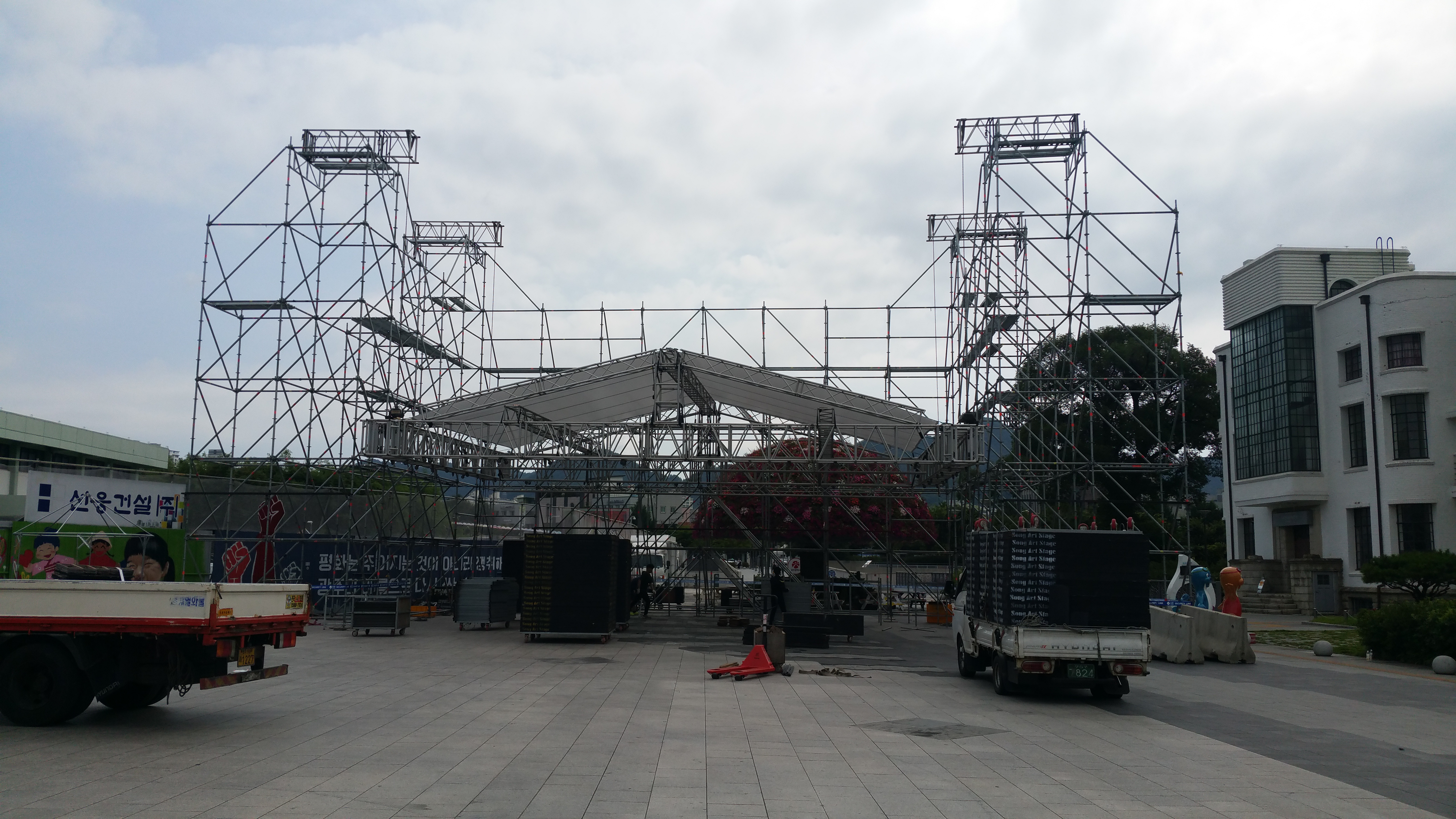Public Bad: Is the Flower Power Tower the Harbinger of a Modern-Day Tragedy of the Commons?
Written by William Urbanski.
Anyone who knows me knows that I love the ACC – more specifically, the 5.18 Plaza: the big, open public space surrounding the fountain downtown. Being able to meet up with my friends there was actually a large factor in me deciding to move back to Gwangju. But since I’ve been back, my beloved ACC Plaza has fallen victim to a non-stop procession of festivals and concerts that, in my opinion, spoil one of the few open spaces in the city.
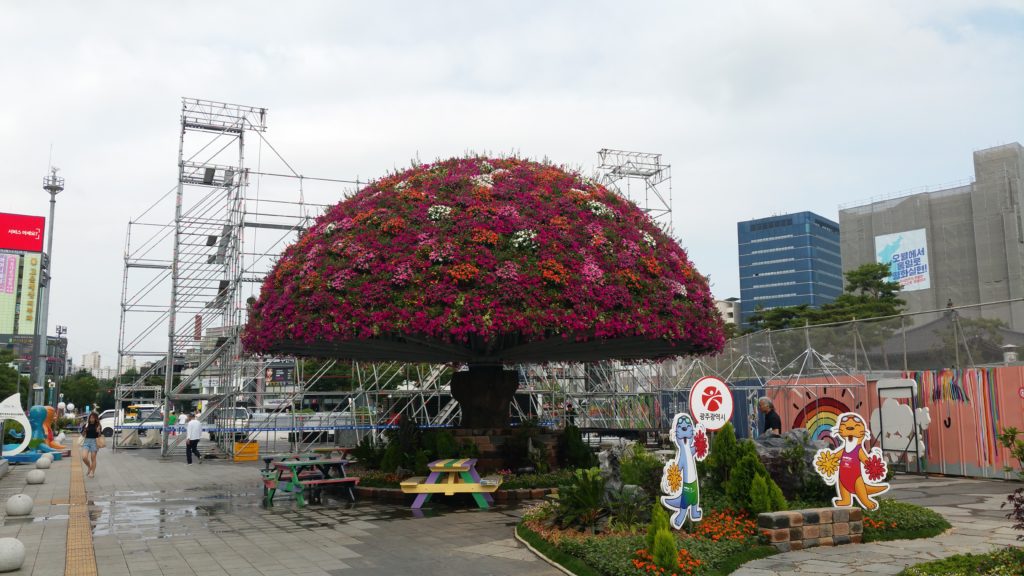
Having an open space in the middle of the city has resulted in a relentless onslaught of festivals and stages erected virtually every weekend in what appears to be a race to see who can jam up the ACC the most. The latest symbol of this arms race is the marvelous and stunning Flower Power Tower that dazzles and hypnotizes all who dare to set eyes upon it. I really have nothing bad to say about this beautiful, revolving masterpiece that actually adds much-needed shade and a sense of wonder, but I don’t like what it represents: further efforts to encroach upon one of the few open, public spaces in the city.
In economic terms, what’s happening at the plaza could be described as a Tragedy of the Commons. This concept, commonly attributed to William Forster Lloyd, describes how too many individuals acting in their own interests can destroy a common public good. In the classic example, the common public good is a field of grass on which cows, owned by different farmers, are allowed to graze. As long as the farmers only let a certain number of cows eat the grass, there will be enough for every cow in perpetuity. But, if one greedy farmer allows too many of his cows on the field, he’ll upset the balance, resulting in a rapid deterioration of the whole field for everyone.
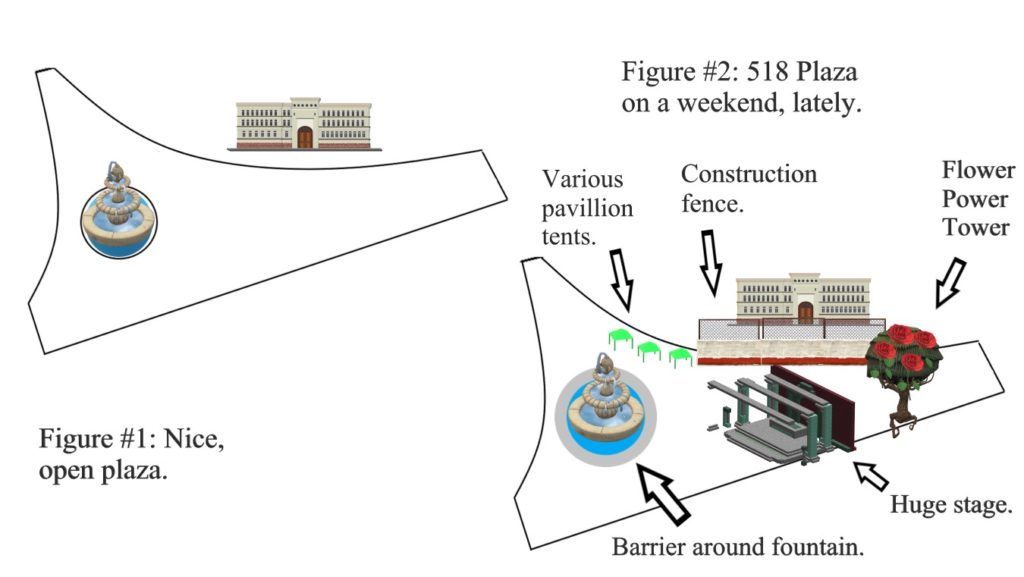
“But, William,” I hear you say, “the concerts and festivals aren’t hurting the metaphorical grass because there is none.” I say otherwise: The stages and the large trucks required to set them up routinely damage the grounds. When the ACC first opened up in 2015, the surface was pristine and even. Now, it’s not hard to find tiles that are chipped, cracked, and uneven.
Listen, I get it. Some people actually enjoy the concerts and festivals that clog up the 5.18 Plaza every weekend from early spring until late fall. Some groups, I’m sure, even feel entitled to use the plaza as a forum for their causes. After all, the plaza is there for everyone, isn’t it? I don’t mind a concert here and there, and I think there’s a lot of cool stuff happening at the Fringe Festival, but subjecting people to them every single Saturday is just overkill.
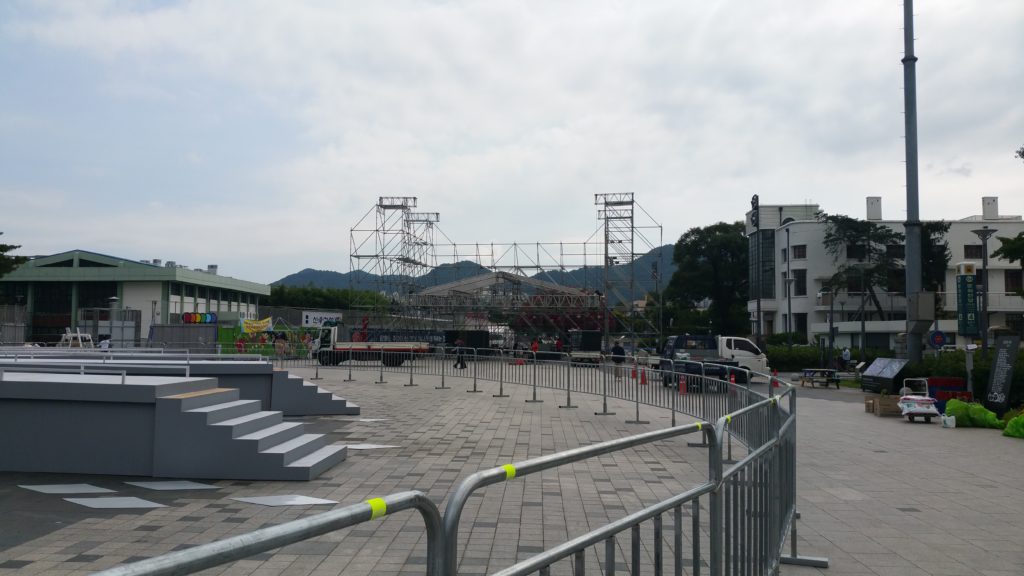
My point is that any perceived benefit attained by having an event must be weighed against what’s referred to in economic parlance as a negative externality. Simply put, negative externalities are unintended bad things that occur whenever we do something. Interestingly, negative externalities tend to affect the world as a whole instead of just the person that causes it. For example, a car is convenient and fast to the individual, but causes pollution that affects lots of people. Factories produce goods we all need and want, but often introduce harmful chemicals into the ecosystem. There’s virtually no limit to the list of negative externalities that can arise. Coming back to the relentless onslaught of festivals at the 5.18 Plaza, it’s not hard to think of the “side effects” they cause: jamming up the plaza, which prevents its quiet enjoyment; all the garbage and broken glass that is left over; the damage done by setting up and tearing down stages; as well as the noise and eye pollution resulting from stages that could only aptly be described as a disaster of aerodynamics.
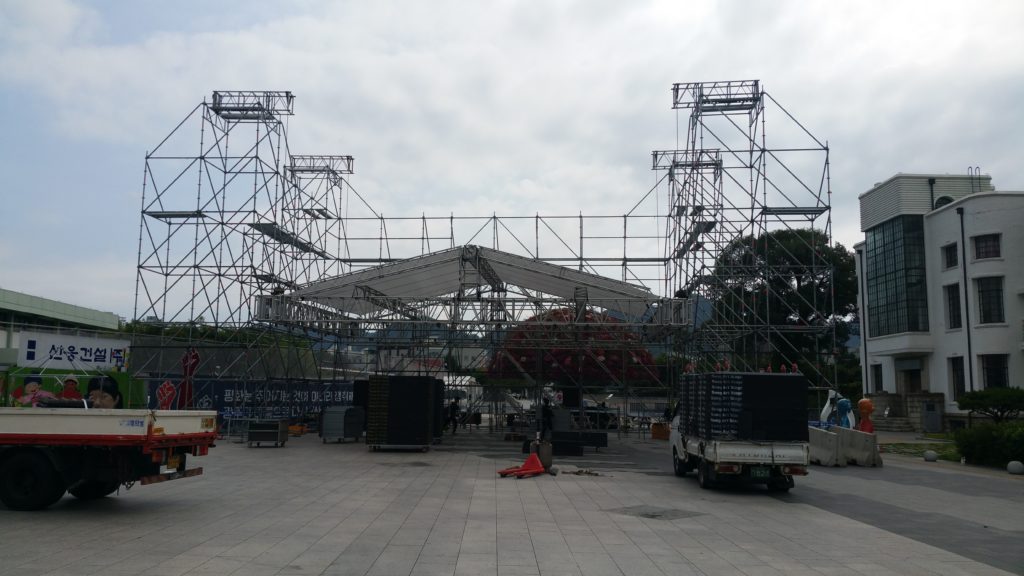
One thing to be clear on is that when a public bad exists, it’s not because of some sinister plot or malevolence; rather, it occurs because of unrestrained competition, and as such, can be deemed a sort of market failure. With regard to the 5.18 Plaza, the massive festivals occur because I feel that too many groups are competing for the space and are being accommodated without consultation to all the parties affected. For example, was the public at large asked if they’d like a Fringe Festival every Saturday? I doubt it. To solve the problems at the plaza requires a higher degree of collaboration rather than competition.
Simplicity is the hardest design concept. There’s a certain aesthetic beauty that comes with a large, clean, and inclusive public space like the 5.18 Plaza. It’s understandable that some people may feel that the plaza has to be jammed up with so-called festivals each and every weekend lest it become underutilized, but I say this is one of those situations where less is more.
The Author
William Urbanski, managing editor of the Gwangju News, has an MA in international relations and cultural diplomacy. He is married to a wonderful Korean woman, always pays cash, and keeps all his receipts.



